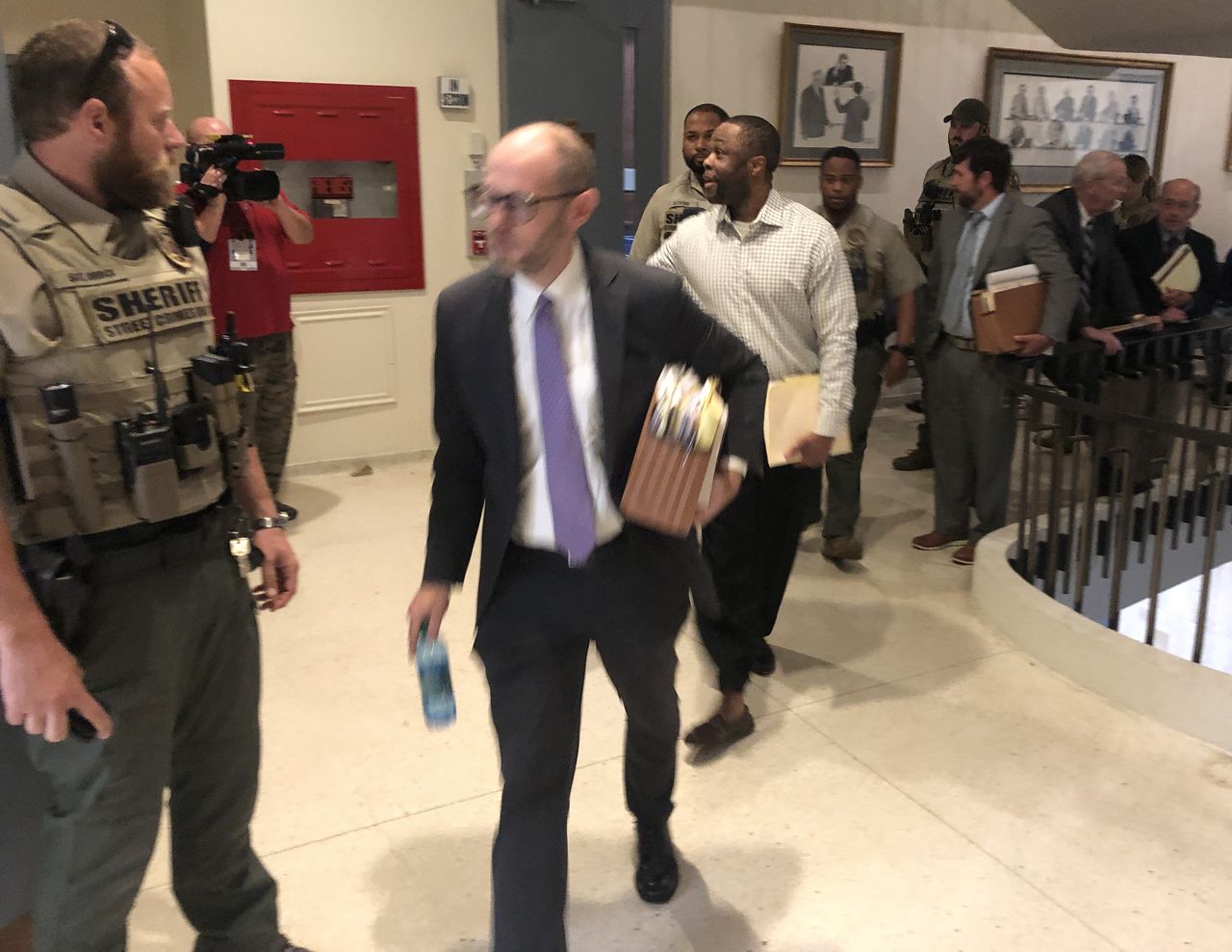No verdict yet for suspect in death of Huntsville police officer
A Madison County jury has now deliberated about 11 hours over three days but has not reached a verdict in the capital murder trial of LaJaromeny Brown, charged with shooting and killing Huntsville police officer Billy Clardy III during an undercover drug operation in 2019.
The jury informed Circuit Judge Chris Comer about 3:30 p.m. Monday that it was ready to break for the day, Comer told the attorneys in court. The judge also said the jury advised it may have a question as it related to a hung jury — a jury that fails to reach a verdict. The judge instructed the jury to put the question in writing. Instead, the jury opted to go home and resume deliberations Tuesday morning.
As he was leaving the courtroom late Monday afternoon, Brown blew a kiss to his family sitting nearby in the gallery and appeared to mouth the words, “Love you.”
Several members of both the Clardy and Brown families were in the courtroom throughout the trial and have waited for the jury’s verdict outside the courtroom since deliberations began.
Both Deputy District Attorney Tim Gann and Brown defense attorney Bruce Gardner, when asked by the judge, said they were comfortable with the jury continuing its deliberations. The jury first began considering a verdict about 5 p.m. Thursday, discussing the case for about 30 minutes before going home to return Friday.
Monday marked the second full-day of deliberations.
While Brown is charged with capital murder — which could result in the death penalty — the jury may also consider two lesser charges: Felony murder and manslaughter. While the jury asked the judge to review instructions on capital murder Friday morning, there has been no inquiries about the lesser charges. The jury had no questions for the judge on Monday.
An issue in deliberations, based on the jury’s question Friday, could be the intent of Brown to shoot Clardy. A capital murder conviction requires the shooter to have intent to kill the victim. Brown admitted while testifying that he shot and killed Clardy, but also said he did not know Clardy was a police officer. The murder of an on-duty police officer automatically rises to capital murder under Alabama law.
Defense attorneys also argued Brown did not know Clardy was a police officer when their client shot him. Clardy was not in uniform when he was shot but was wearing a protective vest with “POLICE” emblazoned across the front.
Brown shot Clardy three times inside an abandoned north Huntsville house on Levert Street after police set a trap to arrest Brown – who arrived at the scene believing he was selling 100 pounds of marijuana to an interested customer, who happened to be an undercover drug task force officer. As Brown entered the house, Clardy emerged from Brown’s left in an effort to take him into custody. Clardy was taking his second step toward Brown when the police officer was shot, according to the body camera footage of Blake Dean, another drug task force undercover officer who was trailing Clardy.
Prosecutors said Brown fled the house after the shooting and he was captured moments later about a block away.
In his confession, Brown also apologized to the Clardy family and expressed remorse. Prosecutors Tim Douthit and Gann questioned the sincerity of that apology during their closing arguments Thursday.
After taking more than a week to select a jury, the trial itself began Wednesday and wrapped up in less than three days. Brown, taking the stand in his own defense, was the only witness called by defense attorneys.
Got questions about Huntsville? Use this form to Ask the Lede.
This story will be updated.
